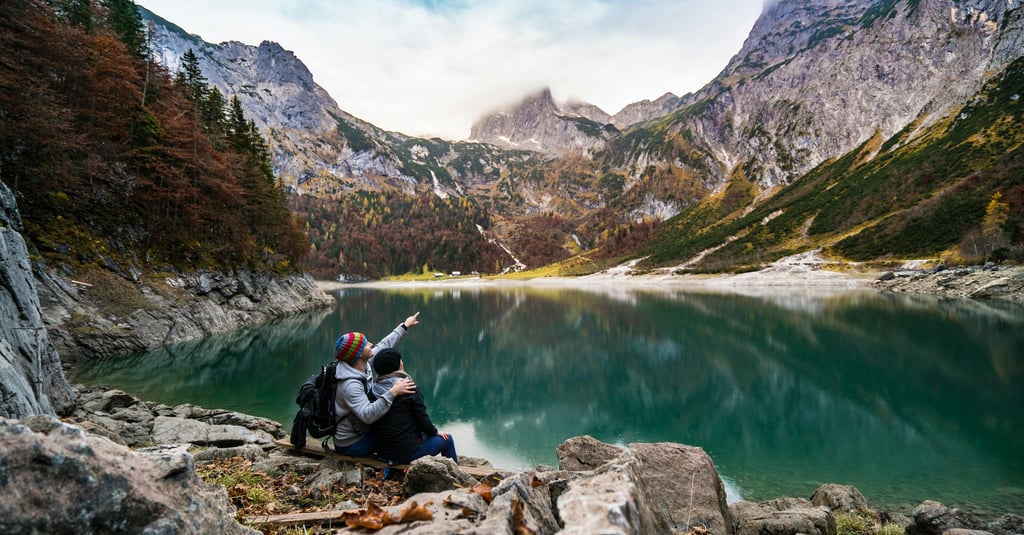Unplug and Perform
New Science Shows Nature Immersion Boosts Creative Problem-Solving by 50%
9/29/20252 min read


We live in a world defined by screens, notifications, and the relentless demand for our attention. It’s no secret that this technology-rich environment is draining, but what is the true cost to our cognitive power—especially our ability to solve complex problems and think creatively?
New research published in PLOS ONE provides a powerful answer, offering a stark contrast between our digital routines and the deep, restorative power of the wilderness. The findings suggest that by spending sustained time immersed in nature and completely unplugging, you can realize a measurable and dramatic 50% increase in your most valuable cognitive resource.
The Experiment: Taking Creativity to the Wild
Researchers sought to test the impact of a full immersion in nature on higher-order cognitive functions. They partnered with Outward Bound to study participants on multi-day wilderness expeditions, focusing on convergent creative reasoning—the ability to find the single, correct solution to a complex, non-obvious problem. This skill is critical for innovation, deep analysis, and breakthrough ideas.
The study employed a rigorous design:
The "In-Hike" Group: Adults were tested on a complex problem-solving task (the Remote Associates Test) after spending four days immersed in nature with a strict ban on all electronic technology.
The "Pre-Hike" Group: A control group was tested using the exact same task just before they started their hike, while still living in their normal, connected, urban environment.
The difference in performance was staggering.
The 50% Cognitive Boost
The participants who had spent four days backpacking in the wilderness, disconnected from digital technology, performed a full 50% better on the creative problem-solving task compared to the group tested before they started.
This finding lays clear groundwork for a powerful conclusion: sustained immersion in a natural setting provides a real, measurable cognitive advantage.
It is one of the first studies to document such a profound and systematic change in higher-level brain function associated with getting completely off the grid.
Why Your Brain Needs a "Nature Break"
The results align perfectly with the Attention Restoration Theory (ART), a model that explains why our brains struggle in modern society and how nature heals us:
Technology Overloads Your Executive Brain: Modern life—sirens, emails, multitasking, and notifications—relies heavily on your directed attention (or executive function). This system is essential for focus, inhibition, and problem-solving, but it is a finite resource that gets fatigued.
Nature Restores It: Natural settings, like a wilderness trail or a serene lake, engage a different type of attention known as soft fascination. These environments are emotionally positive and low-arousing, allowing your executive attentional system to rest, replenish, and restore its capacity for high-level tasks.
The researchers note that the observed increase in creativity is likely due to the dual benefit of the experience: gaining the restorative power of nature while simultaneously removing the draining, attention-hijacking effects of technology.
The Takeaway: How to Get Your 50% Back
While you may not be able to disappear into the backcountry for four days every week, this research offers a clear path to improving your cognitive output:
Prioritize Sustained Disconnection: Short nature breaks are good, but sustained disconnection is where the dramatic cognitive benefits appear. Schedule technology-free time, whether it's a full weekend camping trip or a multi-day digital detox at home.
Make Your Break Natural: Even short exposure helps. When you take a break, choose a park, a botanical garden, nature-based museum exhibit, or even a quiet room with a window view of trees. Actively seek out low-arousing stimuli to let your prefrontal cortex rest.
Use It for Innovation: If you are facing a truly challenging project—the kind that requires deep insight and creative problem-solving—recognize that your best solution may not be found by pushing harder at your desk. It might be waiting for you out in the wild.
